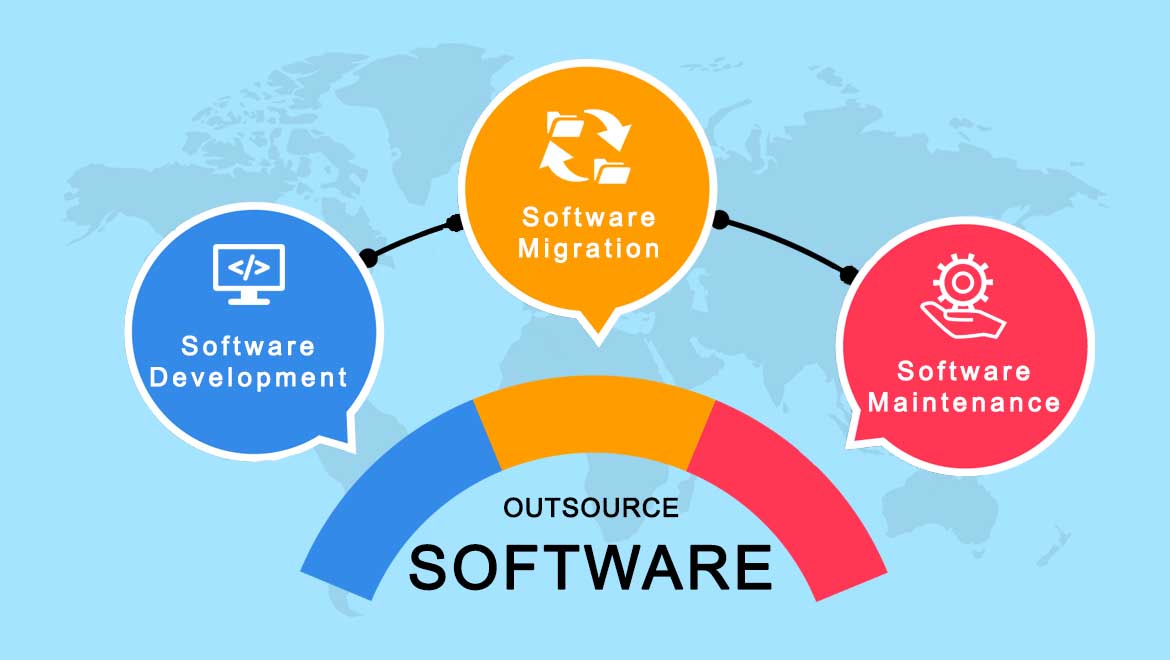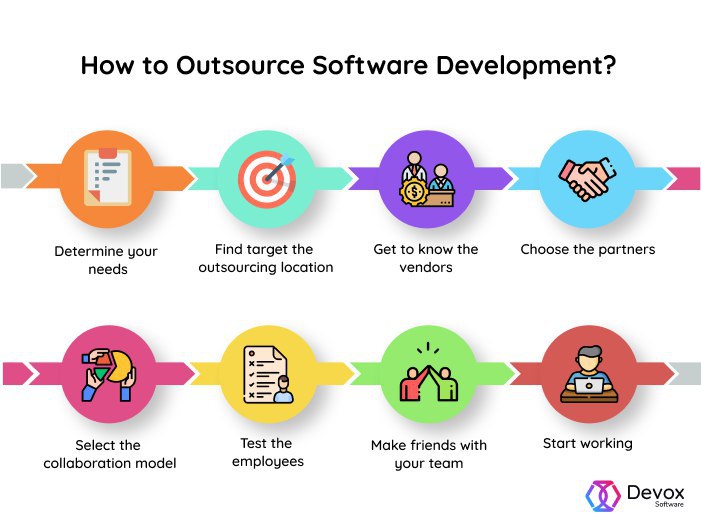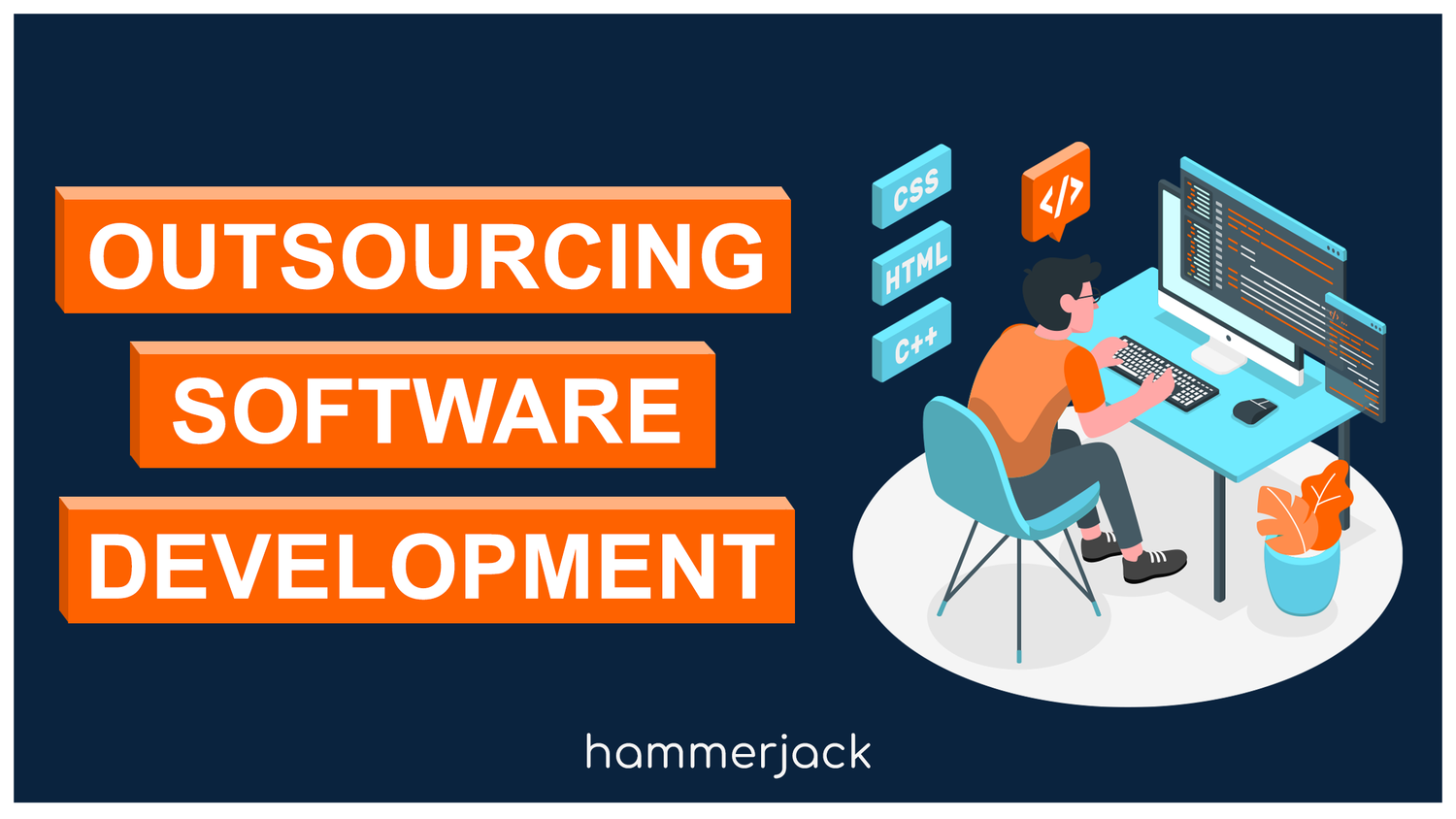Outsourced software development services revolutionize the way businesses approach project management, ensuring efficiency and cost-effectiveness. By delving into the intricacies of outsourcing, companies can streamline their processes and achieve optimal results.
This comprehensive guide explores various aspects of outsourced software development services, from finding the right partner to managing projects effectively while maintaining quality and security standards.
Introduction to Outsourced Software Development Services

Outsourcing software development refers to the practice of hiring external teams or companies to design, develop, and maintain software applications. This approach allows businesses to access specialized expertise, reduce costs, and accelerate project timelines.
Companies That Commonly Outsource Software Development, Outsourced software development services
- Google: Outsourced the development of its Android operating system to third-party vendors.
- Microsoft: Often partners with external firms for software development projects, such as app development.
- IBM: Utilizes outsourcing for various software development tasks to streamline processes.
Benefits of Outsourcing Software Development Services
- Cost Efficiency: Outsourcing can help reduce operational costs by leveraging resources in countries with lower labor costs.
- Access to Specialized Skills: Companies can tap into a global talent pool and benefit from expertise that may not be available in-house.
- Flexibility and Scalability: Outsourcing allows businesses to scale their development teams quickly based on project requirements.
Reasons Why Companies Opt for Outsourcing Software Development
- Focus on Core Activities: Outsourcing non-core functions like software development enables companies to concentrate on their core business operations.
- Time Savings: By delegating software development tasks to external partners, organizations can expedite project delivery timelines.
- Risk Mitigation: Sharing project risks with experienced outsourcing firms can help mitigate potential challenges and uncertainties.
Finding the Right Outsourcing Partner

When it comes to outsourcing software development services, finding the right partner is crucial for the success of your project. There are several key criteria to consider when selecting an outsourcing partner, including their expertise, experience, communication skills, and cultural fit.
Different Outsourcing Models
There are three main outsourcing models to choose from: offshoring, nearshoring, and onshoring. Offshoring involves contracting a company from a distant country, nearshoring involves partnering with a company in a nearby country or region, and onshoring involves working with a company in the same country. Each model has its own advantages and challenges, so it’s important to evaluate which one aligns best with your project requirements and budget.
Importance of Cultural Fit
Cultural fit is a critical factor when selecting an outsourcing partner. Working with a company that shares similar values, work ethics, and communication styles can help prevent misunderstandings and ensure a smooth collaboration. It is essential to assess how well the outsourcing partner’s culture aligns with your own organizational culture to foster a productive working relationship.
Significance of Communication
Effective communication is key to the success of any outsourcing project. Clear and open communication channels help in setting expectations, providing feedback, and resolving any issues that may arise during the development process. Regular updates, status reports, and meetings play a vital role in ensuring that both parties are on the same page and working towards the same goals.
Managing Outsourced Software Projects: Outsourced Software Development Services

Managing outsourced software projects requires a strategic approach to ensure successful collaboration and delivery. By following best practices and utilizing the right tools and technologies, businesses can effectively overcome challenges in working with remote development teams.
Best Practices for Managing Outsourced Software Development Projects
- Establish clear communication channels and guidelines to ensure alignment between the in-house team and the outsourced team.
- Set realistic goals and timelines to manage expectations and track progress effectively.
- Regularly review and evaluate the outsourced team’s performance to address any issues proactively.
- Provide adequate training and resources to the outsourced team to ensure they have the necessary skills and knowledge to deliver quality work.
Strategies for Overcoming Challenges in Managing Remote Development Teams
- Organize regular virtual meetings to foster collaboration and maintain a sense of team unity.
- Use project management tools like Jira, Trello, or Asana to track tasks, milestones, and progress in real-time.
- Encourage open communication and feedback to address any misunderstandings or conflicts promptly.
- Establish a strong project management framework that allows for flexibility and adaptability to changing requirements.
Tools and Technologies Used in Managing Outsourced Software Projects
-
Version control systems like Git for tracking changes and collaborating on code.
-
Collaboration platforms such as Slack or Microsoft Teams for instant messaging and file sharing.
-
Virtual meeting software like Zoom or Skype for regular team meetings and discussions.
-
Project management software like Basecamp or Monday.com for organizing tasks, timelines, and resources.
Role of Project Management Methodologies in Outsourced Software Development
- Agile methodologies like Scrum or Kanban help in breaking down large projects into manageable tasks and promoting iterative development.
- Waterfall methodology provides a structured approach with clearly defined stages and deliverables, suitable for projects with well-defined requirements.
- DevOps practices integrate development and operations teams to streamline collaboration and automate software delivery processes.
Quality Assurance in Outsourced Software Development
Quality assurance plays a crucial role in ensuring the success of outsourced software development projects. It involves a set of processes and methodologies aimed at maintaining high standards of quality in the software being developed.
Processes Involved in Ensuring Quality
- Requirement Analysis: Thoroughly understanding the client’s requirements to ensure that the software meets their expectations.
- Quality Planning: Developing a quality management plan to Artikel the quality standards and processes to be followed.
- Quality Control: Monitoring and evaluating the software development process to identify and address any quality issues.
- Testing: Conducting various types of testing such as functional testing, performance testing, and security testing to ensure the software functions as intended.
Testing Methodologies in Outsourced Software Development
- Waterfall Model: A sequential approach where testing is done after development is complete.
- Agile Methodology: Testing is integrated throughout the development process in short iterations.
- DevOps: A combination of development and operations where testing is automated and continuous.
Role of Automated Testing Tools
Automated testing tools play a vital role in maintaining quality standards in outsourced software development. These tools help in accelerating the testing process, improving test coverage, and detecting defects early in the development cycle. By automating repetitive testing tasks, teams can focus on more complex and critical aspects of quality assurance.
Security and Confidentiality Concerns
When it comes to outsourcing software development, security and confidentiality concerns are paramount. Businesses need to be aware of the potential risks and take proactive measures to protect sensitive data throughout the outsourcing process.
Common Security Risks
- Unauthorized access to confidential information
- Data breaches or leaks
- Loss of intellectual property
- Misuse of data by third-party vendors
Strategies for Data Security
- Implement strict access controls and encryption protocols
- Regularly audit and monitor data access and usage
- Establish clear data security policies and guidelines
- Use secure communication channels for sharing sensitive information
Legal Considerations
- Include robust confidentiality agreements in the outsourcing contracts
- Ensure compliance with data protection laws and regulations
- Clarify data ownership and usage rights in the contract
Best Practices for Mitigating Risks
- Conduct thorough background checks on outsourcing partners
- Regularly update security protocols and software systems
- Provide security training for employees involved in the outsourcing project
- Perform regular security audits and risk assessments
Closing Notes
Embracing outsourced software development services opens doors to a world of possibilities, enabling companies to expand their capabilities and reach new heights of success. By prioritizing quality, communication, and security, businesses can navigate the complexities of outsourcing with confidence and achieve their objectives seamlessly.
Key Questions Answered
What criteria should I consider when selecting an outsourcing partner?
When choosing an outsourcing partner, factors like expertise, experience, cultural fit, and communication skills play a crucial role. It’s essential to assess these aspects to ensure a successful partnership.
How can companies overcome challenges in managing remote development teams?
Implementing robust communication channels, setting clear expectations, leveraging project management tools, and fostering team cohesion through regular interactions can help overcome challenges in managing remote teams effectively.
What are the common security risks associated with outsourcing software development?
Common security risks include data breaches, intellectual property theft, and unauthorized access to sensitive information. It’s vital for companies to implement stringent security measures and protocols to mitigate these risks.
